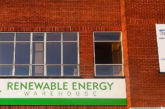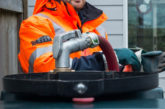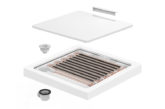
As we head into the colder months, homeowners often start thinking more about heating systems. With increasing focus on renewable energy and electrified heating, many installers may be considering how this impacts their customers, especially those off-grid with limited options. While renewable energy gets the spotlight, rising household bills mean homeowners are looking for ways to save on heating costs.
One solution is renewable liquid gases (RLG), such as bioLPG and rDME. Due to their chemical similarity, the transition from LPG to renewable liquid gas can be straightforward, says Liquid Gas UK’s CEO, George Webb (pictured).
“One of the most important things installers need to know is that RLGs are a drop-in replacement. This means switching to RLG doesn’t require costly system changes as customers can continue using their existing boilers, pipework and appliances. RLGs can be blended with LPG, stored in the same cylinders and tanks, and transported as part of the usual delivery process.
“Given that affordability is a priority for homeowners, this provides a major advantage over more disruptive alternatives like heat pumps, which for off-grid, older properties, often require expensive retrofitting and insulation upgrades,” he adds.
Mr Webb says RLGs can help installers address customer concerns about future environmental requirements. “Heating accounts for 18% of the UK’s emissions, so transforming how we heat our homes is essential, but costs need to be fair. Installers are vital in making greener fuels more accessible. By recommending RLGs, they can provide a solution that meets customer needs today, delivers significant carbon reductions, and aligns with the UK’s long-term climate goals.”
Liquid Gas UK says it is committed to providing the support needed to instil confidence in recommending RLGs. It offers resources, technical guides and safe codes of practice. “Fundamentally, there is no need for new training with RLGs, which is great news for installers and means they can reassure customers their existing LPG boilers will be relevant for years to come,” says Mr Webb.
For more information on renewable liquid gases, visit liquidgasuk.org












